-
 Paramedics in general practice can improve access
for some patients, but they should not completely
substitute GPs
Paramedics in general practice can improve access
for some patients, but they should not completely
substitute GPs
Making it easier and quicker for patients to get the help they need from primary care is a key health policy priority. Patient buy-in and adequate supervision are needed to make paramedics in general practice clinically- and cost-effective
-
 Improving services for people with infection after hip replacement: fewer operations, less delays, holistic care
Improving services for people with infection after hip replacement: fewer operations, less delays, holistic care
Using evidenced-based best practice guidelines on diagnosis and treatment of infection has the potential to improve treatment and care for people with infection after hip replacement.
-
 Meals on Wheels: awareness-raising of the service and its benefits is needed to aid prevention in adult social care
Meals on Wheels: awareness-raising of the service and its benefits is needed to aid prevention in adult social care
Meals on Wheels could support adults with care needs to remain nourished, socially connected, and living in their own home and communities for longer.
-
 Domestic Abuse: awareness and action needed on chemical control
Domestic Abuse: awareness and action needed on chemical control
This research explored the use of prescribed and non-prescribed medication (including vaccines) and other substances as part of coercively controlling domestic abuse.
-
 Better support is needed for young people vulnerable to abuse in intimate relationships
Better support is needed for young people vulnerable to abuse in intimate relationships
Relationship abuse affects around one-third of women and men in the UK by the time they turn 22, with latest figures showing it to be most common among young adults. The costs associated with domestic abuse in the UK (of which relationship abuse makes up a large part) are estimated to be £66 billion.
-
 Paediatric incontinence: early identification and treatment needed to prevent mental health problems
Paediatric incontinence: early identification and treatment needed to prevent mental health problems
Paediatric incontinence is often preventable and treatable, but many children and young people are not receiving the care they need. Persistence of incontinence into adolescence is linked to an increased risk of mental health problems, but mental health is often not assessed or treated in adolescents with incontinence.
-
 Trauma-informed approaches in healthcare: piecemeal implementation needs UK-wide leadership, strategy and evidence
Trauma-informed approaches in healthcare: piecemeal implementation needs UK-wide leadership, strategy and evidence
It is thought that trauma-informed approaches at system level can improve experiences and outcomes and prevent re-traumatisation in services for patients and staff.
Many UK policies and guidelines recommend implementing such approaches across healthcare and other sectors. However, despite the concept existing since the early 2000s, the evidence base for its effectiveness and acceptability is still in development.
-
 Making virtual wards for frailty work better: guide for commissioners
Making virtual wards for frailty work better: guide for commissioners
People with frailty are at risk of their health deteriorating unpredictably. Frailty is increasing in the UK’s ageing population and acute hospital admissions are high, which is becoming increasingly challenging for the NHS.
-
 Supporting children’s physical activity beyond the COVID-19 pandemic
Supporting children’s physical activity beyond the COVID-19 pandemic
Physical activity is central to the future health of the nation and preventative healthcare strategies. Active children are more likely to become active adults, and childhood is a key
period for developing physical skills and confidence.
-
 Children who fail to meet UK dietary guidelines have worse cardiometabolic health as young adults
Children who fail to meet UK dietary guidelines have worse cardiometabolic health as young adults
In the UK, heart and circulatory diseases contribute to a quarter of all deaths, and almost a third of these are classed as premature. Unhealthy diets are a key modifiable risk factor involved in the development of cardiovascular disease (CVD).
-
 Inequality in action sports: How marketing and media can help foster inclusion
Inequality in action sports: How marketing and media can help foster inclusion
Like other outdoor action sports, mountain biking has traditionally been a male-dominated sport. Only 15-25% of participants are women. Women continue to face challenges in feeling part of mountain biking, and in feeling that their participation is equally valued on its own terms. There is a strong role for media and marketing in fostering the sport’s culture and its inclusivity.
-
 Alternative Rites of Passage: What is their role in Female Genital Mutilation/Cutting abandonment?
Alternative Rites of Passage: What is their role in Female Genital Mutilation/Cutting abandonment?
Alternative Rites of Passage (ARP) are a popular strategy to encourage abandonment of FGM/C mainly in East Africa. Yet their effectiveness in eliminating or reducing FGM/C remains unclear. Two expert meetings have led to evidence-based recommendations for research, policy, and programmes on ARP.
-
Urgent reforms are needed for prison healthcare services after a decade of austerity
The UK government’s 2012 Benchmarking Programme, which implemented austerity measures on prison spending, has led to a reduction in the prison workforce without a corresponding reduction in the prison population. This policy has negatively affected healthcare in English prisons.
-
 Mental Capacity, Self-Neglect, and Adult Safeguarding Practices: Evidence Synthesis and Agenda for Change
Mental Capacity, Self-Neglect, and Adult Safeguarding Practices: Evidence Synthesis and Agenda for Change
This study explored what Safeguarding Adults Reviews (SARs) can tell us about how to improve adult safeguarding in England, with a focus on mental capacity and self-neglect. Six Safeguarding Adults Reviews (SARs) published in England in 2020 were analysed. This policy brief presents key findings and recommendations to improve future policy and practice for adult social work.
-
 Global pandemics require a community response
Global pandemics require a community response
People in minoritized ethnic groups were hit much harder by the coronavirus pandemic than others, with higher numbers of infections and deaths from the virus and also more exposure to the negative economic consequences of the pandemic and the associated lockdown.
-
Nutrition labelling helps individuals choose healthier foods
Front-Of-Pack (FOP) nutrition labels provide information on the energy, saturated fats, sugar and salt content of individual food products. In 2006, the UK Food Standards Agency (FSA) recommended retailers to introduce FOP nutrition labels on their products, focusing specifically on seven types of foods: ready meals, burgers / sausages, pies, breaded / coated meats, pizzas, sandwiches and cereal. This recommendation was taken up by several UK retailers.
-
 Global data on young people who inject drugs suggests harm reduction approaches should be scaled up
Global data on young people who inject drugs suggests harm reduction approaches should be scaled up
Injecting drug use is a global issue: around the world an estimated 15.6 million people inject psychoactive drugs. People who inject drugs tend to begin doing so in adolescence. Countries that have larger numbers of adolescents who inject drugs may be at risk of emerging epidemics of blood borne viruses unless they take urgent action.
-
 The causes of cancer: implications for policy and practice
The causes of cancer: implications for policy and practice
There are over 200 different types of cancer, and 1 in 2 people in the UK will get cancer in their lifetime (Cancer Research UK). More than 330,000 people are diagnosed with cancer each year in the UK, and over 40% of these cases are linked to a combination of 14 major lifestyle and environmental factors (such as diet and physical activity) that are potentially preventable.
-
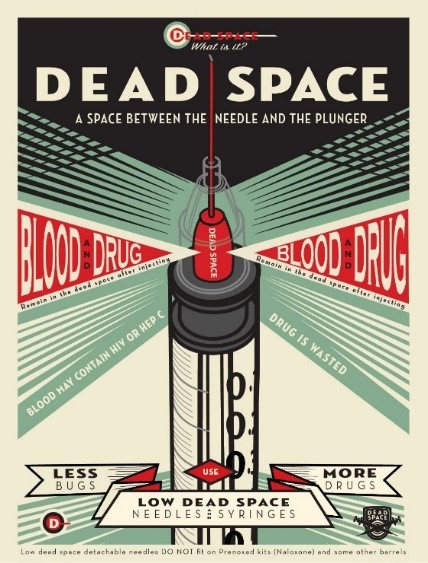 Cost-effective tools to reduce the spread of the Hepatitis C Virus in people who inject drugs
Cost-effective tools to reduce the spread of the Hepatitis C Virus in people who inject drugs
There are an estimated 71 million people worldwide living with the blood borne virus (BBV) hepatitis C. Most new infections in the UK and other developed countries are amongst people who inject drugs. Therefore, initiatives to reduce the spread of the hepatitis C virus (HCV) in this population are needed. This multi-method research project has strengthened the evidence base for World Health Organization (WHO) and UK National Institute for Health and Care Excellence (NICE) recommendations that aim to eliminate HCV amongst people who inject drugs. It evaluated the clinical benefits and cost-effectiveness of needle and syringe programmes (NSP) that provide access to sterile injecting equipment for people who inject drugs and the use of low dead space syringes in reducing the spread of the HCV.
-
 How depression relates to academic achievement in adolescence and early adulthood: identifying high risk points
How depression relates to academic achievement in adolescence and early adulthood: identifying high risk points
It is increasingly recognised that depression and poor educational achievement are connected, but how they are connected remains poorly understood, making it hard for policymakers to address the issue.
-
 'Biddable Youth': Twitter sports and esports gambling adverts: action required to protect children
'Biddable Youth': Twitter sports and esports gambling adverts: action required to protect children
The complexity of social media data has made it difficult to regulate online gambling advertising at scale. This is acute when it comes to children and those vulnerable to problem gambling. A particular issue is betting on esports (video games played competitively by professional gamers for spectators) often using cryptocurrencies like bitcoin.
-
 The importance of being Dad: services working with families should recognise and support all fathers, including those with learning difficulties
The importance of being Dad: services working with families should recognise and support all fathers, including those with learning difficulties
Fathers are important. They can play a crucial role in a child’s life. But fathers are often overlooked, especially when they have learning difficulties.
-
 Rewarding food businesses that promote healthier and sustainable eating: Lessons learned from the Bristol Eating Better Award evaluation
Rewarding food businesses that promote healthier and sustainable eating: Lessons learned from the Bristol Eating Better Award evaluation
-
 National and local policies still need strengthening: findings from the Learning Disabilities Mortality Review
National and local policies still need strengthening: findings from the Learning Disabilities Mortality Review
The Learning Disabilities Mortality Review (LeDeR) programme in England is the first national programme of its kind in the world. It was established in response to concerns about premature deaths of people with learning disabilities that were related to a poor quality of health and social care provision.
-
 Addressing older men’s experiences of loneliness and social isolation in later life
Addressing older men’s experiences of loneliness and social isolation in later life
Loneliness can impact on people’s lives at any time, however, later life is consistently associated with loneliness (
Age UK, 2018). While higher percentages of older women report loneliness as a problem compared to men, a greater number of older men (50+) report moderate to high levels of social isolation (
Beach & Bamford, 2013).
-
 Ensuring trans people in Wales receive dignified and inclusive health and social care in later life: The Trans Ageing and Care (TrAC) project, 2016-18
Ensuring trans people in Wales receive dignified and inclusive health and social care in later life: The Trans Ageing and Care (TrAC) project, 2016-18
Stonewall estimates that around 1% of the population identify as trans, including people identifying as nonbinary, though there are no accurate estimates of the number of trans people in the UK. The recent UK survey of over 108,000 LGB&T respondents commissioned by the UK Government (2018) indicates that trans respondents (13% of the sample) report lower life satisfaction scores than the general population.
-
 Academy Trusts need better support to promote health
Academy Trusts need better support to promote health
Over half of pupils in England now attend an academy school (1). Health and educational outcomes are known to be inextricably linked. Healthy children and young people obtain better educational outcomes which, in turn, are associated with better life long health. Schools are key settings for health promotion but this study reveals variability across academies in how student health is prioritised.
-
“Stigmatising” and “traumatising” approaches to FGM-safeguarding need urgent review
Female Genital Mutilation (FGM) is considered by the UN to be a ‘global concern’. International organisations routinely claim a 98% prevalence rate among the Somali population (UNICEF 2013). As a consequence, Somalis living in the UK have attracted particular attention from FGM-safeguarding policy. This research presents the perspectives of Somali families living in Bristol with experience of FGM-safeguarding services.
-
 NHS managers: part of the solution, not the problem
NHS managers: part of the solution, not the problem
Policymakers and sceptical public opinion have frequently cast doubt on the contribution of public sector managers. This is especially true in the NHS, where it is claimed that managers soak up resources that might otherwise be used to improve front line services.
-
 Fetal alcohol spectrum disorder: prevention, identification and support need more resources
Fetal alcohol spectrum disorder: prevention, identification and support need more resources
Up to 17 per cent of UK children could have symptoms consistent with fetal alcohol spectrum disorder (FASD). Before this study no UK estimates existed.
-
 A UK right to food law could tackle food poverty and environmental degradation
A UK right to food law could tackle food poverty and environmental degradation
Around 8.4 million people in the UK struggle to get enough to eat. At the same time, small-scale farmers and local grocery shops are disappearing, the country is increasingly dependent on food imports and healthy food is too often unavailable or unaffordable. Enshrining a right to food in law can end this situation.
-
 Delivering public health outcomes: vending machines should stock healthier food and drinks
Delivering public health outcomes: vending machines should stock healthier food and drinks
Our environment influences what we eat. The Government’s
National Planning Practice Guidance outlines the importance of ‘planning for an environment that promotes access to healthier food’. Foods sold in vending machines in
hospitals, workplaces and
recreation facilities are obesogenic (likely to contribute to obesity), as they are energy dense (more calories per bite), high in fat and sugar and low in fibre.
-
 More than a medical symptom: the need for holistic care of breathlessness
More than a medical symptom: the need for holistic care of breathlessness
Chronic and pathological (refractory) breathlessness is debilitating for millions of people in the UK. Despite attempts to define breathlessness to capture its complex subjective nature (ATS statement 2012), it is often reduced to a simple medical symptom or physiological problem. However, breathlessness is a much broader experience, created by diverse physiological inputs and mediated by emotional state, beliefs and expectations (Faull et al. 2018).
-
 Young people with continence problems need better support at secondary school
Young people with continence problems need better support at secondary school
Dealing with continence problems at school is difficult and a lack of support and understanding from staff has an adverse effect on young people’s well-being and attainment.
-
 All parents should be offered the opportunity to engage with the review of their baby’s death
All parents should be offered the opportunity to engage with the review of their baby’s death
When their baby dies shortly before or after birth, parents often want and need to understand why. Yet there is no standard process currently for engaging parents in the hospital review
which follows the death of their baby. This process is vital to prevent future deaths. Parental engagement is now mandatory in the
PMRT programme.
-
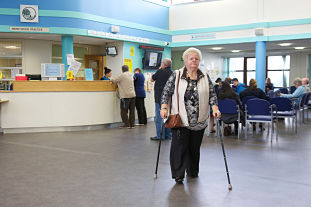 How should health policy respond to the growing challenge of multimorbidity?
How should health policy respond to the growing challenge of multimorbidity?
We need patient-centred care, with more emphasis on generalist rather than specialist care and better integration between general practice, hospitals, and social care
-
 Increasing the duration of repeat prescriptions may save NHS money and improve care
Increasing the duration of repeat prescriptions may save NHS money and improve care
This research found that current guidance to issue 28-day repeat prescriptions is not based on good evidence, and that 3-month repeat prescriptions may be more cost-effective.
-
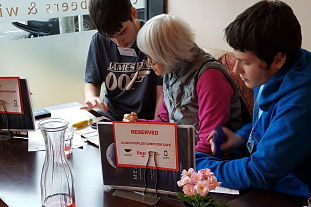 Loneliness and social isolation: the need for community-led action
Loneliness and social isolation: the need for community-led action
This research shows that loneliness affects the old and the young, and highlights the power of community-based solutions.
-
 Management consultancy and inefficiency in the NHS: time for an urgent review
Management consultancy and inefficiency in the NHS: time for an urgent review
The implication is that, generally, management consultants are not only failing to improve the efficiency of NHS hospitals, but, in most cases, are making the situation worse,
especially considering the fees paid.
-
 Reaping the rewards from UK leadership in farm animal welfare: time for a national strategy
Reaping the rewards from UK leadership in farm animal welfare: time for a national strategy
Research led by the University of Bristol and partners provides the evidence to show that current support for improved animal welfare policy is sustainable and achievable.
-
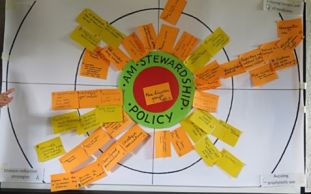 The future of farming policy in the UK: giving farmers a voice in development and delivery
The future of farming policy in the UK: giving farmers a voice in development and delivery
In a range of UK and international projects, the University of Bristol has been exploring how facilitated farmer-led approaches can tackle societal challenges, husbandry issues and market opportunities.
-
 Rates of giant liver fluke and rumen fluke in cattle: implications for effective control in Tanzania
Rates of giant liver fluke and rumen fluke in cattle: implications for effective control in Tanzania
Parasite infections in cattle have a major impact, including on human health.
This research into infection rates and effective treatment options has led to evidence-based guidelines for effective and sustainable control of giant liver fluke and rumen fluke in cattle in Tanzania.
-
 Preventing suicide in Sri Lanka: Supporting vulnerable populations
Preventing suicide in Sri Lanka: Supporting vulnerable populations
In the last two decades, Sri Lanka has made significant progress in reducing its suicide rate, but the suicide rate in young people is still twice that seen in high-income countries. There is an urgent need
for a cross-sectoral approach to reduce the suicide rate in Sri Lanka.
-
 Poo Patrol: Community-led science and action to reduce dog fouling and improve child health
Poo Patrol: Community-led science and action to reduce dog fouling and improve child health
Fouling of public areas by dog faeces has serious public health impacts, not least by discouraging healthy outdoor play.
This research engaged schools and communities to support and monitor their efforts to stimulate behaviour change among dog owners.
-
 Pregnancy loss: consistent bereavement care pathways needed
Pregnancy loss: consistent bereavement care pathways needed
This research looked at the extent to which the Human Tissue Authority (HTA) Guidance (2015) has been incorporated into hospital policies for the management and disposal of pregnancy remains within NHS England.
-
 Online GP consultation systems need further development and careful implementation to realise benefits
Online GP consultation systems need further development and careful implementation to realise benefits
Policymakers are advocating technological alternatives to face-to-face GP consultations to reduce GP workload and patient waiting times. This research evaluated an online consultation system and found that it did not reduce GP workload, but could improve access for some patients. Online consultation systems could be improved by changing the way they are marketed to patients and used.
-
 Developing inclusive care homes for older people who identify as lesbian, gay, bisexual and trans (LGBT)
Developing inclusive care homes for older people who identify as lesbian, gay, bisexual and trans (LGBT)
Care home staff and managers often lack knowledge about the delivery of personalised care to older LGBT residents.
-
 Measures of school performance are biased by genetic differences between students
Measures of school performance are biased by genetic differences between students
Some value-added measures reflect genetic differences between students and may misattribute pre-existing differences in pupil ability to school and teacher performance, leading to biased school league tables.
-
 Advice to eat fish at least twice a week during pregnancy lost in confusing guidelines
Advice to eat fish at least twice a week during pregnancy lost in confusing guidelines
This research evaluated the associations between fish consumption, mercury and child development in the UK
-
 Clean water linked to rising birth rates in Africa: why development initiatives must consider women’s reproductive services
Clean water linked to rising birth rates in Africa: why development initiatives must consider women’s reproductive services
This research explores the unintended consequences of foreign aid and highlights the need for community based, bottom-up approaches to rural development initiatives in Africa.
-
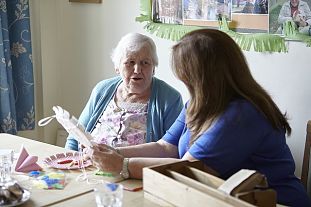 Care homes need urgent review
Care homes need urgent review
This research examines how we can improve the quality of life of older people in care homes.
-
 Energy planning in cities requires holistic assessment of both environmental and health impacts
Energy planning in cities requires holistic assessment of both environmental and health impacts
This research has developed a model for analysing energy related policies and their effects both in the city and beyond.
-
 Policies that reduce greenhouse gases can improve human wellbeing
Policies that reduce greenhouse gases can improve human wellbeing
This research assesses the impact of urban policies on human wellbeing.
-
 Conflicts of interest in healthcare: NHS procurement rules must be clarified
Conflicts of interest in healthcare: NHS procurement rules must be clarified
This research takes stock of recent developments in NHS governance and explores ways to clarify procurement rules.
-
 Good Practice Guidance on working with parents with a learning disability must be updated and placed at the heart of practice
Good Practice Guidance on working with parents with a learning disability must be updated and placed at the heart of practice
The Good Practice Guidance on working with parents with a learning disability must be moved from the archive to the desktop.
-
 Active after-school clubs are important for improving children’s physical activity
Active after-school clubs are important for improving children’s physical activity
This briefing highlights the finding that after-school is a key time for children to be physically active. It also identifies training for existing school staff as a potentially cost-effective way of increasing physical activity provision.
-
 Improving sheep and goat health: community-led monitoring and targeted treatment
Improving sheep and goat health: community-led monitoring and targeted treatment
Monitoring the health of whole herds and targeting treatment at individual animals that need it most can effectively improve animal health and productivity while minimising cost. This research looked at a community-led framework for gutworm treatment for goats and sheep in northern Botswana.
-
 The 2008 Global Financial Crisis: effects on mental health and suicide
The 2008 Global Financial Crisis: effects on mental health and suicide
The 2008-2013 recession was followed by rises in suicide in England and other affected countries. It is critical that we learn lessons from the recent recession to reduce the impact of future economic downturns on suicide and mental health.
-
 Priorities for suicide prevention: balancing the risks and opportunities of internet use
Priorities for suicide prevention: balancing the risks and opportunities of internet use
Minimising the risks of the internet while harnessing its potential for good is one of the most significant emerging challenges for suicide prevention. This research explored how people with suicidal feelings use the internet, and its impact on their suicidal behaviour.
-
 Delivery is just as important as content in sex and relationship education
Delivery is just as important as content in sex and relationship education
This research looks at what makes sex and relationship education effective and acceptable to young people
-
 Getting girls active: Reducing gender inequality in physical activity
Getting girls active: Reducing gender inequality in physical activity
Most girls are less active than boys from childhood to adolescence. Creative and concerted efforts are needed to directly address this gender gap. Our research shows that peers, parents, active travel to school and after-school clubs hold promise to help girls become and stay active.
-
 Too many takeaways? How the food environment affects the health and wellbeing of communities
Too many takeaways? How the food environment affects the health and wellbeing of communities
“We don’t have a single youth club, any safe places where youngsters can come together and have a good time. So the takeaways become the place where youngsters meet.” - Aisha
-
 Appropriate Adults: Protecting the rights
and welfare of vulnerable adults in custody
Appropriate Adults: Protecting the rights
and welfare of vulnerable adults in custody
There is no standard model of funding for Appropriate Adult services for
vulnerable adults and provision is often inadequate. Local authorities can fund
provision as part of their wider safeguarding responsibilities.
-
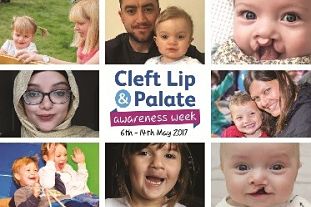 Cleft lip and palate: Improve centralised model of care to ensure best outcomes for children
Cleft lip and palate: Improve centralised model of care to ensure best outcomes for children
This research assesses the impact of centralising cleft lip and palate care services on child outcomes, 15 years after centralisation.
-
 Raise awareness of epistemic injustice to improve healthcare in England
Raise awareness of epistemic injustice to improve healthcare in England
This briefing summarises the interim findings from project EPIC, a 6-year, multi-university, multidisciplinary research project. EPIC is a collaboration between the universities of Bristol, Birmingham, and Nottingham. It draws on research methods from a range of humanities and social science disciplines, which it applies to first-person accounts of ill persons and healthcare professionals, survey data, archival documents, and case studies.
-
 Reduce Blood Borne Virus (BBV) stigma: keep your organisation’s health and safety routines up to date
Reduce Blood Borne Virus (BBV) stigma: keep your organisation’s health and safety routines up to date
People living with Blood Borne Viruses (BBVs) such as HIV, Hepatitis B and Hepatitis C frequently experience stigma at work and in the community (Aghaizu et al. 2023). Most people remain unaware that there have been extraordinary advances in treatments that make it possible to cure Hepatitis C completely, and make it impossible for people on HIV treatment to pass it on (Britain Thinks, 2021). This is reflected in continued fears of BBV exposure, despite very low to zero risk of transmission in most day-to-day interactions.
 Paramedics in general practice can improve access
for some patients, but they should not completely
substitute GPs
Making it easier and quicker for patients to get the help they need from primary care is a key health policy priority. Patient buy-in and adequate supervision are needed to make paramedics in general practice clinically- and cost-effective
Paramedics in general practice can improve access
for some patients, but they should not completely
substitute GPs
Making it easier and quicker for patients to get the help they need from primary care is a key health policy priority. Patient buy-in and adequate supervision are needed to make paramedics in general practice clinically- and cost-effective Improving services for people with infection after hip replacement: fewer operations, less delays, holistic care
Using evidenced-based best practice guidelines on diagnosis and treatment of infection has the potential to improve treatment and care for people with infection after hip replacement.
Improving services for people with infection after hip replacement: fewer operations, less delays, holistic care
Using evidenced-based best practice guidelines on diagnosis and treatment of infection has the potential to improve treatment and care for people with infection after hip replacement. Meals on Wheels: awareness-raising of the service and its benefits is needed to aid prevention in adult social care
Meals on Wheels could support adults with care needs to remain nourished, socially connected, and living in their own home and communities for longer.
Meals on Wheels: awareness-raising of the service and its benefits is needed to aid prevention in adult social care
Meals on Wheels could support adults with care needs to remain nourished, socially connected, and living in their own home and communities for longer. Domestic Abuse: awareness and action needed on chemical control
This research explored the use of prescribed and non-prescribed medication (including vaccines) and other substances as part of coercively controlling domestic abuse.
Domestic Abuse: awareness and action needed on chemical control
This research explored the use of prescribed and non-prescribed medication (including vaccines) and other substances as part of coercively controlling domestic abuse. Better support is needed for young people vulnerable to abuse in intimate relationships
Relationship abuse affects around one-third of women and men in the UK by the time they turn 22, with latest figures showing it to be most common among young adults. The costs associated with domestic abuse in the UK (of which relationship abuse makes up a large part) are estimated to be £66 billion.
Better support is needed for young people vulnerable to abuse in intimate relationships
Relationship abuse affects around one-third of women and men in the UK by the time they turn 22, with latest figures showing it to be most common among young adults. The costs associated with domestic abuse in the UK (of which relationship abuse makes up a large part) are estimated to be £66 billion. Paediatric incontinence: early identification and treatment needed to prevent mental health problems
Paediatric incontinence is often preventable and treatable, but many children and young people are not receiving the care they need. Persistence of incontinence into adolescence is linked to an increased risk of mental health problems, but mental health is often not assessed or treated in adolescents with incontinence.
Paediatric incontinence: early identification and treatment needed to prevent mental health problems
Paediatric incontinence is often preventable and treatable, but many children and young people are not receiving the care they need. Persistence of incontinence into adolescence is linked to an increased risk of mental health problems, but mental health is often not assessed or treated in adolescents with incontinence. Trauma-informed approaches in healthcare: piecemeal implementation needs UK-wide leadership, strategy and evidence
It is thought that trauma-informed approaches at system level can improve experiences and outcomes and prevent re-traumatisation in services for patients and staff. Many UK policies and guidelines recommend implementing such approaches across healthcare and other sectors. However, despite the concept existing since the early 2000s, the evidence base for its effectiveness and acceptability is still in development.
Trauma-informed approaches in healthcare: piecemeal implementation needs UK-wide leadership, strategy and evidence
It is thought that trauma-informed approaches at system level can improve experiences and outcomes and prevent re-traumatisation in services for patients and staff. Many UK policies and guidelines recommend implementing such approaches across healthcare and other sectors. However, despite the concept existing since the early 2000s, the evidence base for its effectiveness and acceptability is still in development. Making virtual wards for frailty work better: guide for commissioners
People with frailty are at risk of their health deteriorating unpredictably. Frailty is increasing in the UK’s ageing population and acute hospital admissions are high, which is becoming increasingly challenging for the NHS.
Making virtual wards for frailty work better: guide for commissioners
People with frailty are at risk of their health deteriorating unpredictably. Frailty is increasing in the UK’s ageing population and acute hospital admissions are high, which is becoming increasingly challenging for the NHS. Supporting children’s physical activity beyond the COVID-19 pandemic
Physical activity is central to the future health of the nation and preventative healthcare strategies. Active children are more likely to become active adults, and childhood is a key period for developing physical skills and confidence.
Supporting children’s physical activity beyond the COVID-19 pandemic
Physical activity is central to the future health of the nation and preventative healthcare strategies. Active children are more likely to become active adults, and childhood is a key period for developing physical skills and confidence. Children who fail to meet UK dietary guidelines have worse cardiometabolic health as young adults
In the UK, heart and circulatory diseases contribute to a quarter of all deaths, and almost a third of these are classed as premature. Unhealthy diets are a key modifiable risk factor involved in the development of cardiovascular disease (CVD).
Children who fail to meet UK dietary guidelines have worse cardiometabolic health as young adults
In the UK, heart and circulatory diseases contribute to a quarter of all deaths, and almost a third of these are classed as premature. Unhealthy diets are a key modifiable risk factor involved in the development of cardiovascular disease (CVD). Inequality in action sports: How marketing and media can help foster inclusion
Like other outdoor action sports, mountain biking has traditionally been a male-dominated sport. Only 15-25% of participants are women. Women continue to face challenges in feeling part of mountain biking, and in feeling that their participation is equally valued on its own terms. There is a strong role for media and marketing in fostering the sport’s culture and its inclusivity.
Inequality in action sports: How marketing and media can help foster inclusion
Like other outdoor action sports, mountain biking has traditionally been a male-dominated sport. Only 15-25% of participants are women. Women continue to face challenges in feeling part of mountain biking, and in feeling that their participation is equally valued on its own terms. There is a strong role for media and marketing in fostering the sport’s culture and its inclusivity. Alternative Rites of Passage: What is their role in Female Genital Mutilation/Cutting abandonment?
Alternative Rites of Passage (ARP) are a popular strategy to encourage abandonment of FGM/C mainly in East Africa. Yet their effectiveness in eliminating or reducing FGM/C remains unclear. Two expert meetings have led to evidence-based recommendations for research, policy, and programmes on ARP.
Alternative Rites of Passage: What is their role in Female Genital Mutilation/Cutting abandonment?
Alternative Rites of Passage (ARP) are a popular strategy to encourage abandonment of FGM/C mainly in East Africa. Yet their effectiveness in eliminating or reducing FGM/C remains unclear. Two expert meetings have led to evidence-based recommendations for research, policy, and programmes on ARP. Mental Capacity, Self-Neglect, and Adult Safeguarding Practices: Evidence Synthesis and Agenda for Change
This study explored what Safeguarding Adults Reviews (SARs) can tell us about how to improve adult safeguarding in England, with a focus on mental capacity and self-neglect. Six Safeguarding Adults Reviews (SARs) published in England in 2020 were analysed. This policy brief presents key findings and recommendations to improve future policy and practice for adult social work.
Mental Capacity, Self-Neglect, and Adult Safeguarding Practices: Evidence Synthesis and Agenda for Change
This study explored what Safeguarding Adults Reviews (SARs) can tell us about how to improve adult safeguarding in England, with a focus on mental capacity and self-neglect. Six Safeguarding Adults Reviews (SARs) published in England in 2020 were analysed. This policy brief presents key findings and recommendations to improve future policy and practice for adult social work. Global pandemics require a community response
People in minoritized ethnic groups were hit much harder by the coronavirus pandemic than others, with higher numbers of infections and deaths from the virus and also more exposure to the negative economic consequences of the pandemic and the associated lockdown.
Global pandemics require a community response
People in minoritized ethnic groups were hit much harder by the coronavirus pandemic than others, with higher numbers of infections and deaths from the virus and also more exposure to the negative economic consequences of the pandemic and the associated lockdown. Global data on young people who inject drugs suggests harm reduction approaches should be scaled up
Injecting drug use is a global issue: around the world an estimated 15.6 million people inject psychoactive drugs. People who inject drugs tend to begin doing so in adolescence. Countries that have larger numbers of adolescents who inject drugs may be at risk of emerging epidemics of blood borne viruses unless they take urgent action.
Global data on young people who inject drugs suggests harm reduction approaches should be scaled up
Injecting drug use is a global issue: around the world an estimated 15.6 million people inject psychoactive drugs. People who inject drugs tend to begin doing so in adolescence. Countries that have larger numbers of adolescents who inject drugs may be at risk of emerging epidemics of blood borne viruses unless they take urgent action. The causes of cancer: implications for policy and practice
There are over 200 different types of cancer, and 1 in 2 people in the UK will get cancer in their lifetime (Cancer Research UK). More than 330,000 people are diagnosed with cancer each year in the UK, and over 40% of these cases are linked to a combination of 14 major lifestyle and environmental factors (such as diet and physical activity) that are potentially preventable.
The causes of cancer: implications for policy and practice
There are over 200 different types of cancer, and 1 in 2 people in the UK will get cancer in their lifetime (Cancer Research UK). More than 330,000 people are diagnosed with cancer each year in the UK, and over 40% of these cases are linked to a combination of 14 major lifestyle and environmental factors (such as diet and physical activity) that are potentially preventable. Cost-effective tools to reduce the spread of the Hepatitis C Virus in people who inject drugs
There are an estimated 71 million people worldwide living with the blood borne virus (BBV) hepatitis C. Most new infections in the UK and other developed countries are amongst people who inject drugs. Therefore, initiatives to reduce the spread of the hepatitis C virus (HCV) in this population are needed. This multi-method research project has strengthened the evidence base for World Health Organization (WHO) and UK National Institute for Health and Care Excellence (NICE) recommendations that aim to eliminate HCV amongst people who inject drugs. It evaluated the clinical benefits and cost-effectiveness of needle and syringe programmes (NSP) that provide access to sterile injecting equipment for people who inject drugs and the use of low dead space syringes in reducing the spread of the HCV.
Cost-effective tools to reduce the spread of the Hepatitis C Virus in people who inject drugs
There are an estimated 71 million people worldwide living with the blood borne virus (BBV) hepatitis C. Most new infections in the UK and other developed countries are amongst people who inject drugs. Therefore, initiatives to reduce the spread of the hepatitis C virus (HCV) in this population are needed. This multi-method research project has strengthened the evidence base for World Health Organization (WHO) and UK National Institute for Health and Care Excellence (NICE) recommendations that aim to eliminate HCV amongst people who inject drugs. It evaluated the clinical benefits and cost-effectiveness of needle and syringe programmes (NSP) that provide access to sterile injecting equipment for people who inject drugs and the use of low dead space syringes in reducing the spread of the HCV. How depression relates to academic achievement in adolescence and early adulthood: identifying high risk points
It is increasingly recognised that depression and poor educational achievement are connected, but how they are connected remains poorly understood, making it hard for policymakers to address the issue.
How depression relates to academic achievement in adolescence and early adulthood: identifying high risk points
It is increasingly recognised that depression and poor educational achievement are connected, but how they are connected remains poorly understood, making it hard for policymakers to address the issue. 'Biddable Youth': Twitter sports and esports gambling adverts: action required to protect children
The complexity of social media data has made it difficult to regulate online gambling advertising at scale. This is acute when it comes to children and those vulnerable to problem gambling. A particular issue is betting on esports (video games played competitively by professional gamers for spectators) often using cryptocurrencies like bitcoin.
'Biddable Youth': Twitter sports and esports gambling adverts: action required to protect children
The complexity of social media data has made it difficult to regulate online gambling advertising at scale. This is acute when it comes to children and those vulnerable to problem gambling. A particular issue is betting on esports (video games played competitively by professional gamers for spectators) often using cryptocurrencies like bitcoin. The importance of being Dad: services working with families should recognise and support all fathers, including those with learning difficulties
Fathers are important. They can play a crucial role in a child’s life. But fathers are often overlooked, especially when they have learning difficulties.
The importance of being Dad: services working with families should recognise and support all fathers, including those with learning difficulties
Fathers are important. They can play a crucial role in a child’s life. But fathers are often overlooked, especially when they have learning difficulties. Rewarding food businesses that promote healthier and sustainable eating: Lessons learned from the Bristol Eating Better Award evaluation
An increasing number of people of all ages consume their meals outside the home. Meals eaten ‘out-of-home’ are often high in energy, fat, sugar and salt and contribute to obesity.
Rewarding food businesses that promote healthier and sustainable eating: Lessons learned from the Bristol Eating Better Award evaluation
An increasing number of people of all ages consume their meals outside the home. Meals eaten ‘out-of-home’ are often high in energy, fat, sugar and salt and contribute to obesity. National and local policies still need strengthening: findings from the Learning Disabilities Mortality Review
The Learning Disabilities Mortality Review (LeDeR) programme in England is the first national programme of its kind in the world. It was established in response to concerns about premature deaths of people with learning disabilities that were related to a poor quality of health and social care provision.
National and local policies still need strengthening: findings from the Learning Disabilities Mortality Review
The Learning Disabilities Mortality Review (LeDeR) programme in England is the first national programme of its kind in the world. It was established in response to concerns about premature deaths of people with learning disabilities that were related to a poor quality of health and social care provision. Addressing older men’s experiences of loneliness and social isolation in later life
Loneliness can impact on people’s lives at any time, however, later life is consistently associated with loneliness (Age UK, 2018). While higher percentages of older women report loneliness as a problem compared to men, a greater number of older men (50+) report moderate to high levels of social isolation (Beach & Bamford, 2013).
Addressing older men’s experiences of loneliness and social isolation in later life
Loneliness can impact on people’s lives at any time, however, later life is consistently associated with loneliness (Age UK, 2018). While higher percentages of older women report loneliness as a problem compared to men, a greater number of older men (50+) report moderate to high levels of social isolation (Beach & Bamford, 2013). Ensuring trans people in Wales receive dignified and inclusive health and social care in later life: The Trans Ageing and Care (TrAC) project, 2016-18
Stonewall estimates that around 1% of the population identify as trans, including people identifying as nonbinary, though there are no accurate estimates of the number of trans people in the UK. The recent UK survey of over 108,000 LGB&T respondents commissioned by the UK Government (2018) indicates that trans respondents (13% of the sample) report lower life satisfaction scores than the general population.
Ensuring trans people in Wales receive dignified and inclusive health and social care in later life: The Trans Ageing and Care (TrAC) project, 2016-18
Stonewall estimates that around 1% of the population identify as trans, including people identifying as nonbinary, though there are no accurate estimates of the number of trans people in the UK. The recent UK survey of over 108,000 LGB&T respondents commissioned by the UK Government (2018) indicates that trans respondents (13% of the sample) report lower life satisfaction scores than the general population. Academy Trusts need better support to promote health
Over half of pupils in England now attend an academy school (1). Health and educational outcomes are known to be inextricably linked. Healthy children and young people obtain better educational outcomes which, in turn, are associated with better life long health. Schools are key settings for health promotion but this study reveals variability across academies in how student health is prioritised.
Academy Trusts need better support to promote health
Over half of pupils in England now attend an academy school (1). Health and educational outcomes are known to be inextricably linked. Healthy children and young people obtain better educational outcomes which, in turn, are associated with better life long health. Schools are key settings for health promotion but this study reveals variability across academies in how student health is prioritised. NHS managers: part of the solution, not the problem
Policymakers and sceptical public opinion have frequently cast doubt on the contribution of public sector managers. This is especially true in the NHS, where it is claimed that managers soak up resources that might otherwise be used to improve front line services.
NHS managers: part of the solution, not the problem
Policymakers and sceptical public opinion have frequently cast doubt on the contribution of public sector managers. This is especially true in the NHS, where it is claimed that managers soak up resources that might otherwise be used to improve front line services. Fetal alcohol spectrum disorder: prevention, identification and support need more resources
Up to 17 per cent of UK children could have symptoms consistent with fetal alcohol spectrum disorder (FASD). Before this study no UK estimates existed.
Fetal alcohol spectrum disorder: prevention, identification and support need more resources
Up to 17 per cent of UK children could have symptoms consistent with fetal alcohol spectrum disorder (FASD). Before this study no UK estimates existed. A UK right to food law could tackle food poverty and environmental degradation
Around 8.4 million people in the UK struggle to get enough to eat. At the same time, small-scale farmers and local grocery shops are disappearing, the country is increasingly dependent on food imports and healthy food is too often unavailable or unaffordable. Enshrining a right to food in law can end this situation.
A UK right to food law could tackle food poverty and environmental degradation
Around 8.4 million people in the UK struggle to get enough to eat. At the same time, small-scale farmers and local grocery shops are disappearing, the country is increasingly dependent on food imports and healthy food is too often unavailable or unaffordable. Enshrining a right to food in law can end this situation. Delivering public health outcomes: vending machines should stock healthier food and drinks
Our environment influences what we eat. The Government’s National Planning Practice Guidance outlines the importance of ‘planning for an environment that promotes access to healthier food’. Foods sold in vending machines in hospitals, workplaces and recreation facilities are obesogenic (likely to contribute to obesity), as they are energy dense (more calories per bite), high in fat and sugar and low in fibre.
Delivering public health outcomes: vending machines should stock healthier food and drinks
Our environment influences what we eat. The Government’s National Planning Practice Guidance outlines the importance of ‘planning for an environment that promotes access to healthier food’. Foods sold in vending machines in hospitals, workplaces and recreation facilities are obesogenic (likely to contribute to obesity), as they are energy dense (more calories per bite), high in fat and sugar and low in fibre. More than a medical symptom: the need for holistic care of breathlessness
Chronic and pathological (refractory) breathlessness is debilitating for millions of people in the UK. Despite attempts to define breathlessness to capture its complex subjective nature (ATS statement 2012), it is often reduced to a simple medical symptom or physiological problem. However, breathlessness is a much broader experience, created by diverse physiological inputs and mediated by emotional state, beliefs and expectations (Faull et al. 2018).
More than a medical symptom: the need for holistic care of breathlessness
Chronic and pathological (refractory) breathlessness is debilitating for millions of people in the UK. Despite attempts to define breathlessness to capture its complex subjective nature (ATS statement 2012), it is often reduced to a simple medical symptom or physiological problem. However, breathlessness is a much broader experience, created by diverse physiological inputs and mediated by emotional state, beliefs and expectations (Faull et al. 2018). Young people with continence problems need better support at secondary school
Dealing with continence problems at school is difficult and a lack of support and understanding from staff has an adverse effect on young people’s well-being and attainment.
Young people with continence problems need better support at secondary school
Dealing with continence problems at school is difficult and a lack of support and understanding from staff has an adverse effect on young people’s well-being and attainment. All parents should be offered the opportunity to engage with the review of their baby’s death
When their baby dies shortly before or after birth, parents often want and need to understand why. Yet there is no standard process currently for engaging parents in the hospital review which follows the death of their baby. This process is vital to prevent future deaths. Parental engagement is now mandatory in the PMRT programme.
All parents should be offered the opportunity to engage with the review of their baby’s death
When their baby dies shortly before or after birth, parents often want and need to understand why. Yet there is no standard process currently for engaging parents in the hospital review which follows the death of their baby. This process is vital to prevent future deaths. Parental engagement is now mandatory in the PMRT programme. How should health policy respond to the growing challenge of multimorbidity?
We need patient-centred care, with more emphasis on generalist rather than specialist care and better integration between general practice, hospitals, and social care
How should health policy respond to the growing challenge of multimorbidity?
We need patient-centred care, with more emphasis on generalist rather than specialist care and better integration between general practice, hospitals, and social care Increasing the duration of repeat prescriptions may save NHS money and improve care
This research found that current guidance to issue 28-day repeat prescriptions is not based on good evidence, and that 3-month repeat prescriptions may be more cost-effective.
Increasing the duration of repeat prescriptions may save NHS money and improve care
This research found that current guidance to issue 28-day repeat prescriptions is not based on good evidence, and that 3-month repeat prescriptions may be more cost-effective. Loneliness and social isolation: the need for community-led action
This research shows that loneliness affects the old and the young, and highlights the power of community-based solutions.
Loneliness and social isolation: the need for community-led action
This research shows that loneliness affects the old and the young, and highlights the power of community-based solutions. Management consultancy and inefficiency in the NHS: time for an urgent review
The implication is that, generally, management consultants are not only failing to improve the efficiency of NHS hospitals, but, in most cases, are making the situation worse, especially considering the fees paid.
Management consultancy and inefficiency in the NHS: time for an urgent review
The implication is that, generally, management consultants are not only failing to improve the efficiency of NHS hospitals, but, in most cases, are making the situation worse, especially considering the fees paid. Reaping the rewards from UK leadership in farm animal welfare: time for a national strategy
Research led by the University of Bristol and partners provides the evidence to show that current support for improved animal welfare policy is sustainable and achievable.
Reaping the rewards from UK leadership in farm animal welfare: time for a national strategy
Research led by the University of Bristol and partners provides the evidence to show that current support for improved animal welfare policy is sustainable and achievable. The future of farming policy in the UK: giving farmers a voice in development and delivery
In a range of UK and international projects, the University of Bristol has been exploring how facilitated farmer-led approaches can tackle societal challenges, husbandry issues and market opportunities.
The future of farming policy in the UK: giving farmers a voice in development and delivery
In a range of UK and international projects, the University of Bristol has been exploring how facilitated farmer-led approaches can tackle societal challenges, husbandry issues and market opportunities. Rates of giant liver fluke and rumen fluke in cattle: implications for effective control in Tanzania
Parasite infections in cattle have a major impact, including on human health. This research into infection rates and effective treatment options has led to evidence-based guidelines for effective and sustainable control of giant liver fluke and rumen fluke in cattle in Tanzania.
Rates of giant liver fluke and rumen fluke in cattle: implications for effective control in Tanzania
Parasite infections in cattle have a major impact, including on human health. This research into infection rates and effective treatment options has led to evidence-based guidelines for effective and sustainable control of giant liver fluke and rumen fluke in cattle in Tanzania. Preventing suicide in Sri Lanka: Supporting vulnerable populations
In the last two decades, Sri Lanka has made significant progress in reducing its suicide rate, but the suicide rate in young people is still twice that seen in high-income countries. There is an urgent need for a cross-sectoral approach to reduce the suicide rate in Sri Lanka.
Preventing suicide in Sri Lanka: Supporting vulnerable populations
In the last two decades, Sri Lanka has made significant progress in reducing its suicide rate, but the suicide rate in young people is still twice that seen in high-income countries. There is an urgent need for a cross-sectoral approach to reduce the suicide rate in Sri Lanka. Poo Patrol: Community-led science and action to reduce dog fouling and improve child health
Fouling of public areas by dog faeces has serious public health impacts, not least by discouraging healthy outdoor play. This research engaged schools and communities to support and monitor their efforts to stimulate behaviour change among dog owners.
Poo Patrol: Community-led science and action to reduce dog fouling and improve child health
Fouling of public areas by dog faeces has serious public health impacts, not least by discouraging healthy outdoor play. This research engaged schools and communities to support and monitor their efforts to stimulate behaviour change among dog owners. Pregnancy loss: consistent bereavement care pathways needed
This research looked at the extent to which the Human Tissue Authority (HTA) Guidance (2015) has been incorporated into hospital policies for the management and disposal of pregnancy remains within NHS England.
Pregnancy loss: consistent bereavement care pathways needed
This research looked at the extent to which the Human Tissue Authority (HTA) Guidance (2015) has been incorporated into hospital policies for the management and disposal of pregnancy remains within NHS England. Online GP consultation systems need further development and careful implementation to realise benefits
Policymakers are advocating technological alternatives to face-to-face GP consultations to reduce GP workload and patient waiting times. This research evaluated an online consultation system and found that it did not reduce GP workload, but could improve access for some patients. Online consultation systems could be improved by changing the way they are marketed to patients and used.
Online GP consultation systems need further development and careful implementation to realise benefits
Policymakers are advocating technological alternatives to face-to-face GP consultations to reduce GP workload and patient waiting times. This research evaluated an online consultation system and found that it did not reduce GP workload, but could improve access for some patients. Online consultation systems could be improved by changing the way they are marketed to patients and used. Developing inclusive care homes for older people who identify as lesbian, gay, bisexual and trans (LGBT)
Care home staff and managers often lack knowledge about the delivery of personalised care to older LGBT residents.
Developing inclusive care homes for older people who identify as lesbian, gay, bisexual and trans (LGBT)
Care home staff and managers often lack knowledge about the delivery of personalised care to older LGBT residents. Measures of school performance are biased by genetic differences between students
Some value-added measures reflect genetic differences between students and may misattribute pre-existing differences in pupil ability to school and teacher performance, leading to biased school league tables.
Measures of school performance are biased by genetic differences between students
Some value-added measures reflect genetic differences between students and may misattribute pre-existing differences in pupil ability to school and teacher performance, leading to biased school league tables. Advice to eat fish at least twice a week during pregnancy lost in confusing guidelines
This research evaluated the associations between fish consumption, mercury and child development in the UK
Advice to eat fish at least twice a week during pregnancy lost in confusing guidelines
This research evaluated the associations between fish consumption, mercury and child development in the UK Clean water linked to rising birth rates in Africa: why development initiatives must consider women’s reproductive services
This research explores the unintended consequences of foreign aid and highlights the need for community based, bottom-up approaches to rural development initiatives in Africa.
Clean water linked to rising birth rates in Africa: why development initiatives must consider women’s reproductive services
This research explores the unintended consequences of foreign aid and highlights the need for community based, bottom-up approaches to rural development initiatives in Africa. Care homes need urgent review
This research examines how we can improve the quality of life of older people in care homes.
Care homes need urgent review
This research examines how we can improve the quality of life of older people in care homes. Energy planning in cities requires holistic assessment of both environmental and health impacts
This research has developed a model for analysing energy related policies and their effects both in the city and beyond.
Energy planning in cities requires holistic assessment of both environmental and health impacts
This research has developed a model for analysing energy related policies and their effects both in the city and beyond. Policies that reduce greenhouse gases can improve human wellbeing
This research assesses the impact of urban policies on human wellbeing.
Policies that reduce greenhouse gases can improve human wellbeing
This research assesses the impact of urban policies on human wellbeing. Conflicts of interest in healthcare: NHS procurement rules must be clarified
This research takes stock of recent developments in NHS governance and explores ways to clarify procurement rules.
Conflicts of interest in healthcare: NHS procurement rules must be clarified
This research takes stock of recent developments in NHS governance and explores ways to clarify procurement rules. Good Practice Guidance on working with parents with a learning disability must be updated and placed at the heart of practice
The Good Practice Guidance on working with parents with a learning disability must be moved from the archive to the desktop.
Good Practice Guidance on working with parents with a learning disability must be updated and placed at the heart of practice
The Good Practice Guidance on working with parents with a learning disability must be moved from the archive to the desktop. Active after-school clubs are important for improving children’s physical activity
This briefing highlights the finding that after-school is a key time for children to be physically active. It also identifies training for existing school staff as a potentially cost-effective way of increasing physical activity provision.
Active after-school clubs are important for improving children’s physical activity
This briefing highlights the finding that after-school is a key time for children to be physically active. It also identifies training for existing school staff as a potentially cost-effective way of increasing physical activity provision. Improving sheep and goat health: community-led monitoring and targeted treatment
Monitoring the health of whole herds and targeting treatment at individual animals that need it most can effectively improve animal health and productivity while minimising cost. This research looked at a community-led framework for gutworm treatment for goats and sheep in northern Botswana.
Improving sheep and goat health: community-led monitoring and targeted treatment
Monitoring the health of whole herds and targeting treatment at individual animals that need it most can effectively improve animal health and productivity while minimising cost. This research looked at a community-led framework for gutworm treatment for goats and sheep in northern Botswana. The 2008 Global Financial Crisis: effects on mental health and suicide
The 2008-2013 recession was followed by rises in suicide in England and other affected countries. It is critical that we learn lessons from the recent recession to reduce the impact of future economic downturns on suicide and mental health.
The 2008 Global Financial Crisis: effects on mental health and suicide
The 2008-2013 recession was followed by rises in suicide in England and other affected countries. It is critical that we learn lessons from the recent recession to reduce the impact of future economic downturns on suicide and mental health. Priorities for suicide prevention: balancing the risks and opportunities of internet use
Minimising the risks of the internet while harnessing its potential for good is one of the most significant emerging challenges for suicide prevention. This research explored how people with suicidal feelings use the internet, and its impact on their suicidal behaviour.
Priorities for suicide prevention: balancing the risks and opportunities of internet use
Minimising the risks of the internet while harnessing its potential for good is one of the most significant emerging challenges for suicide prevention. This research explored how people with suicidal feelings use the internet, and its impact on their suicidal behaviour. Delivery is just as important as content in sex and relationship education
This research looks at what makes sex and relationship education effective and acceptable to young people
Delivery is just as important as content in sex and relationship education
This research looks at what makes sex and relationship education effective and acceptable to young people Getting girls active: Reducing gender inequality in physical activity
Most girls are less active than boys from childhood to adolescence. Creative and concerted efforts are needed to directly address this gender gap. Our research shows that peers, parents, active travel to school and after-school clubs hold promise to help girls become and stay active.
Getting girls active: Reducing gender inequality in physical activity
Most girls are less active than boys from childhood to adolescence. Creative and concerted efforts are needed to directly address this gender gap. Our research shows that peers, parents, active travel to school and after-school clubs hold promise to help girls become and stay active. Too many takeaways? How the food environment affects the health and wellbeing of communities
“We don’t have a single youth club, any safe places where youngsters can come together and have a good time. So the takeaways become the place where youngsters meet.” - Aisha
Too many takeaways? How the food environment affects the health and wellbeing of communities
“We don’t have a single youth club, any safe places where youngsters can come together and have a good time. So the takeaways become the place where youngsters meet.” - Aisha Appropriate Adults: Protecting the rights
and welfare of vulnerable adults in custody
There is no standard model of funding for Appropriate Adult services for vulnerable adults and provision is often inadequate. Local authorities can fund provision as part of their wider safeguarding responsibilities.
Appropriate Adults: Protecting the rights
and welfare of vulnerable adults in custody
There is no standard model of funding for Appropriate Adult services for vulnerable adults and provision is often inadequate. Local authorities can fund provision as part of their wider safeguarding responsibilities. Cleft lip and palate: Improve centralised model of care to ensure best outcomes for children
This research assesses the impact of centralising cleft lip and palate care services on child outcomes, 15 years after centralisation.
Cleft lip and palate: Improve centralised model of care to ensure best outcomes for children
This research assesses the impact of centralising cleft lip and palate care services on child outcomes, 15 years after centralisation. Raise awareness of epistemic injustice to improve healthcare in England
This briefing summarises the interim findings from project EPIC, a 6-year, multi-university, multidisciplinary research project. EPIC is a collaboration between the universities of Bristol, Birmingham, and Nottingham. It draws on research methods from a range of humanities and social science disciplines, which it applies to first-person accounts of ill persons and healthcare professionals, survey data, archival documents, and case studies.
Raise awareness of epistemic injustice to improve healthcare in England
This briefing summarises the interim findings from project EPIC, a 6-year, multi-university, multidisciplinary research project. EPIC is a collaboration between the universities of Bristol, Birmingham, and Nottingham. It draws on research methods from a range of humanities and social science disciplines, which it applies to first-person accounts of ill persons and healthcare professionals, survey data, archival documents, and case studies. Reduce Blood Borne Virus (BBV) stigma: keep your organisation’s health and safety routines up to date
People living with Blood Borne Viruses (BBVs) such as HIV, Hepatitis B and Hepatitis C frequently experience stigma at work and in the community (Aghaizu et al. 2023). Most people remain unaware that there have been extraordinary advances in treatments that make it possible to cure Hepatitis C completely, and make it impossible for people on HIV treatment to pass it on (Britain Thinks, 2021). This is reflected in continued fears of BBV exposure, despite very low to zero risk of transmission in most day-to-day interactions.
Reduce Blood Borne Virus (BBV) stigma: keep your organisation’s health and safety routines up to date
People living with Blood Borne Viruses (BBVs) such as HIV, Hepatitis B and Hepatitis C frequently experience stigma at work and in the community (Aghaizu et al. 2023). Most people remain unaware that there have been extraordinary advances in treatments that make it possible to cure Hepatitis C completely, and make it impossible for people on HIV treatment to pass it on (Britain Thinks, 2021). This is reflected in continued fears of BBV exposure, despite very low to zero risk of transmission in most day-to-day interactions.